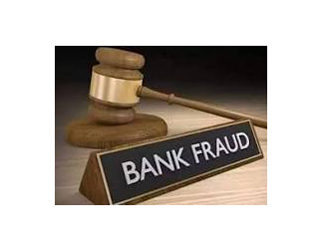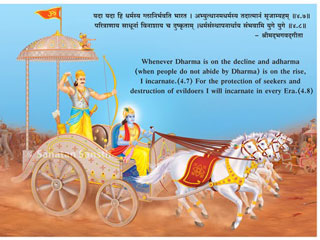

1. Madhya Pradesh High Court and Supreme Court admonish Bank of Maharashtra
Mohanlal Patidar and his brother Brijesh Patidar took an agricultural loan from the Bank of Maharashtra’s Jabalpur and Bhopal branches. They were repaying the loan in instalments as agreed upon with the Bank. Then came Reserve Bank of India’s scheme of ‘One-time settlement’. Accordingly, there was some correspondence between the Bank and these farmer brothers. On 9.3.2021, the Bank asked the Patidar brothers to pay Rs 36,50,000/- as a one-time settlement to benefit from the scheme. Reserve Bank took the decision of settling the loan amount through one-time settlement as a matter of policy. Thereafter, the Patidar brothers paid Rs 35,00,000 to the Bank. This was 95% of the total loan amount.
According to the one-time settlement scheme, even if the borrower paid 10% of the amount, his eligibility and qualification application is verified. In this case, the Patidar brothers repaid almost 95% of the loan. And yet, the Bank of Maharashtra rejected their application for the scheme and asked them to pay Rs 50,50,000, which was entirely a one-sided decision. They were informed in writing that only upon payment of the entire amount, could the decision to clear their loan be taken. This amount was far more than the amount decided earlier. In this case the Bank did not follow the rules of natural justice, meaning, the Bank did not take a decision by giving due consideration to the borrower’s views.
2. Patidar brothers filed a petition in the Jabalpur Bench of the Madhya Pradesh High Court
Patidar brothers filed a petition in the Jabalpur Bench of the Madhya Pradesh High Court against the Bank of Maharashtra, saying that the Bank had hiked the repayment amount on its own. They claimed that the Government and the Government Undertakings should have legally correct and legitimate expect-ations. During the negotiations, an amount of Rs 36,50,000 had been agreed upon. Increasing this amount to Rs 50,50,000 is completely unlawful. Banks are a Government Undertaking under Article 12 of the Constitution. Bank of Maharashtra is implementing the Mahasamadhan Yojana started by the RBI.
In the Madhya Pradesh High Court, the Bank argued that it did not receive the letter sent by the concerned farmers; the one they received was sent by Rukminidevi School. Hence, it has no legal standing. That school is owned by the Patidar brothers. Depositing Rs 35,00,000 out of the Rs 36,50,000 does not mean becoming eligible for the one-time settlement scheme. Under this scheme, the Bank has to thoughtfully take a decision. The Bank quoted the lapsation clause, and said that the one-time settlement scheme stands annulled in the case of the said farmers.
On this, the Madhya Pradesh High Court said that as per the Indian Evidence Act 115, the Bank cannot take such a decision. In the public sector, according to Article 12 of the Indian Constitution, a Bank becomes a Government Undertaking. Hence, it should follow the principle of legitimate expectation, meaning, it should have legally correct and legitimate expectation. When an applicant pays 10% amount, his application is considered for scrutiny for eligibility of the one-time settlement scheme. The Bank should have verified if the applicant is eligible. It is absolutely incorrect that the application has not been considered even after paying Rs 35 lakhs out of the Rs 36,50,00 and arbitrarily increasing the amount to Rs 50,50,000. The Court gave the verdict that the Bank should consider the payment of Rs 35 lakhs as final and should certify that the borrowers have cleared their loan.
3. The Supreme Court upheld the decision of the Madhya Pradesh High Court
The Bank of Maharashtra moved the Supreme Court against this decision. It was taken up for hearing recently by a 3-member Bench. The Court came down heavily on the advocate of the Bank of Maharashtra. ‘When loans running into crores of Rupees are outstanding with big companies and people, instead of going after them for recovery, why do you harass poor farmers who are ready to pay off the loan and have paid 95% of the loan amount ?’ Saying this, the Supreme Court dismissed the Bank of Maharashtra plea. The Supreme Court upheld the verdict of the Madhya Pradesh High Court that the Bank should consider the payment of Rs 35 lakhs as final and should certify that the borrowers have cleared the loan.
4. The Supreme Court realised that the Banks target common people and waive off the big defaulters such as liquor baron Vijay Mallya, diamond merchants Nirav Modi and Mehul Choksi
In this case, the Supreme Court came down heavily on the Bank of Maharashtra. The likes of Vijay Mallya, Nirav Modi have duped the Banks of crores of Rupees. The Board of Directors, officers and the staff of the Banks were all involved in these scams. Nirav Modi (a diamond merchant from Gujarat) robbed the Banks of thousands of crores and fled abroad. Similarly, Vijay Mallya from Karnataka also duped Banks of thousands of crores and fled abroad. All these scams cost the Banks Rs 22,585 crore. The respective Bank staff and Board of Directors were involved in these scams. The Supreme Court realised that instead of targeting the big defaulters who have duped the Banks of thousands of crores, they target small fish who are an easy catch.
5. The failure of the Union Government in preventing the Banking scams
Despite various Bank scams, there were no measures to prevent these scams. Even today, there are Banking scams and the numbers are increasing. In 2015-2016, Bank scams amounted to Rs 67,760 crore, and the figure for 2016-17 was Rs 59,966.40 crore. For the year gone by, there were 9,933 Bank scams involving over Rs 40,000 crore. For the year 2020-21 the scam amount was Rs 81,291.54 crore. In the current financial year, though the amount has reduced by half, the number of Bank scams has increased. This includes Banks such as the Punjab National Bank, State Bank of India, Bank of India, Bank of Baroda, Union Bank, Canara Bank, Bank of Maharashtra, etc. On one hand, these Banks bend their rules for the rich and the powerful, and on the other, trouble common farmers.
6. The Union Government should take stringent action against the swindlers
In a related case that is going on in the Supreme Court, the Union Government has said that Modi, Mallya and Choksi have so far paid back Rs 18,000 crore. Besides, their properties worth another Rs 15,000 crore have been attached. All this is because of the stringent measures adopted by the Union Government since 2014. Besides, the Union Government has also brought about major changes in the deportation agreements with other countries, and as a result, these swindlers are scared though in hiding. They are worried about the new policies of the Government. This is a positive situation and a ray of hope for the Indians.
II Shrikrushnarpanamastu II
– H.H. (Advocate) Suresh Kulkarni (Founder Member, Hindu Vidhidnya Parishad and Advocate in Bombay High Court, 18.5.2022)
The SC realised that Banks do not target the big defaulters who have duped them of thousands of crores !
India’s 4 Biggest Financial ScamsThe Enforcement Directorate (ED) recently attached assets worth Rs 415 crore of Maharashtra’s two builders in relation to the Yes Bank-DHFL Bank loan fraud-linked money laundering case. According to an RBI estimate, the total credit of the Indian Banking System was at Rs 120 lakh crore till May 2022. Here’re four biggest financial scams in India : The Rs 34,000 crore DHFL ScamA consortium comprising 17 lenders extended credit facilities of Rs 42,871 crore between 2010 and 2018. In January 2019, DHFL was hit by an investigation after media reports surfaced on allegations of illicit appropriation of funds. ABG Shipyard ScamThe fall of ABG Shipyard is a textbook example of financial overreach and it has now been booked by CBI for allegedly causing losses of Rs 22,842 crore to a consortium of 28 Banks. The Amtek Auto CaseIn May 2022, a complaint by a whistleblower blew the lid off an alleged Rs 12,000-crore fraud by Amtek Auto promoters. Bhushan Power and SteelThis March, The Serious Fraud Investigation Office (SFIO) told a Delhi court that Bhushan Power & Steel Ltd (BPSL) had allegedly siphoned off funds worth crores from Banks to buy residential properties in Mumbai and Delhi. BPSL continues to stare at a liability of Rs 37,000 crore. |

 Supreme Court Judges to declare their assets
Supreme Court Judges to declare their assets Protest by Indian origin MP Raja Krishnamurthy in the US
Protest by Indian origin MP Raja Krishnamurthy in the US The US imposes 37 per cent tariffs on Bangladesh
The US imposes 37 per cent tariffs on Bangladesh Radiant Thoughts of Sachchidananda Parabrahman (Dr) Jayant Athavale
Radiant Thoughts of Sachchidananda Parabrahman (Dr) Jayant Athavale Law banning Conversion of Religion is against Individual Freedom : Babbles Former Judge S Muralidhar
Law banning Conversion of Religion is against Individual Freedom : Babbles Former Judge S Muralidhar Editorial : Khalistan, Balochistan and Pakistan
Editorial : Khalistan, Balochistan and Pakistan